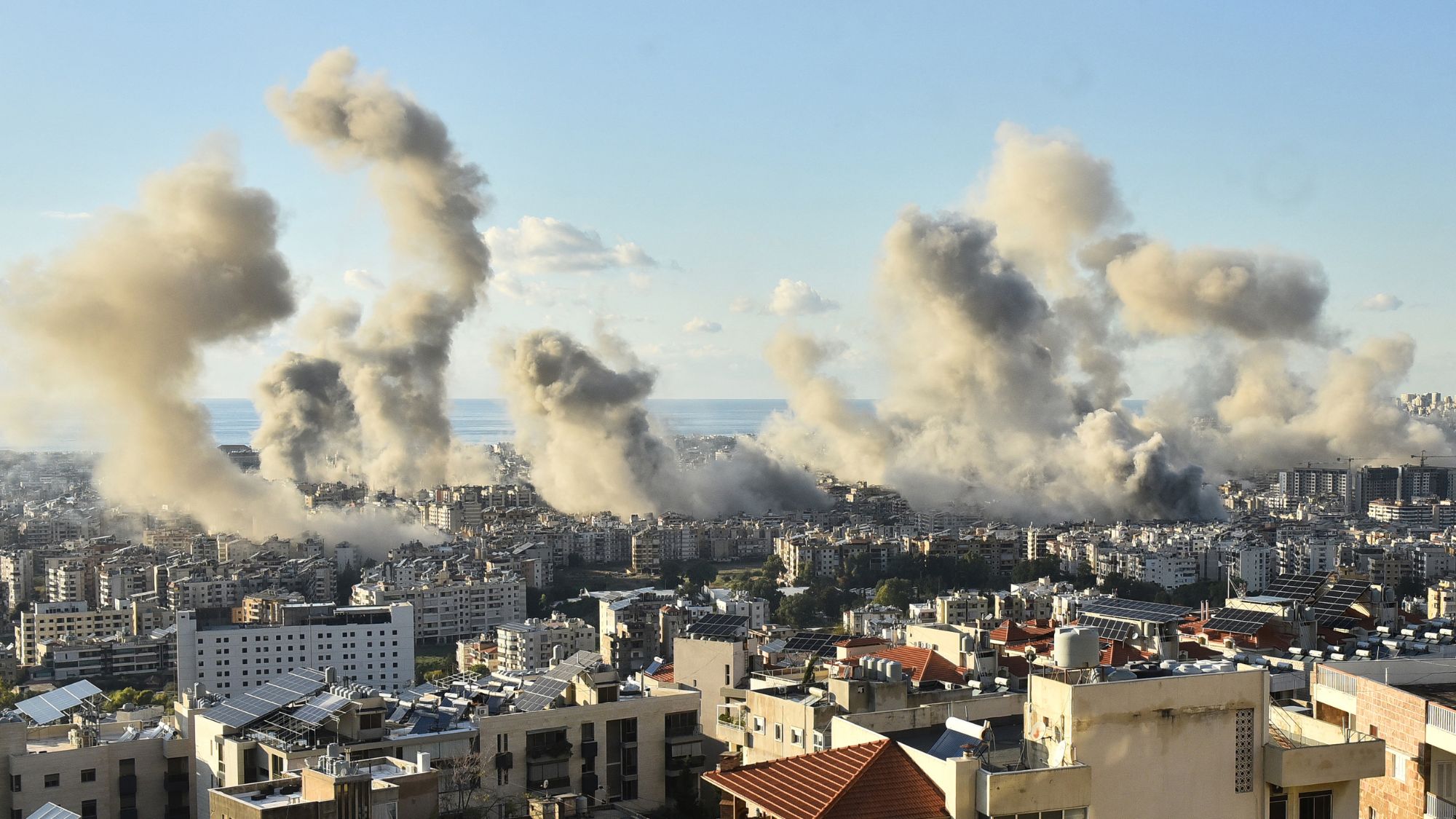Israel and Hezbollah agree to ceasefire
Both sides accepted an agreement brokered by the United States and France


A free daily email with the biggest news stories of the day – and the best features from TheWeek.com
You are now subscribed
Your newsletter sign-up was successful
What happened
Israeli Prime Minister Benjamin Netanyahu Tuesday urged his governing cabinet to approve a ceasefire between his country and Hezbollah in Lebanon. The announcement that Israel was moving forward with the proposal came hours after a series of Israeli air strikes that left dozens dead and injured near downtown Beirut. The agreement came into effect at 4 a.m. local time Wednesday (10 p.m. ET Tuesday).
Who said what
Netanyahu announced his support for the proposal in a televised address that "appeared to be aimed primarily at rebuffing right-wing criticism of the deal in Israel," said The New York Times. The ceasefire is "not the end of the war" between Israel and Hezbollah forces in Lebanon, said The Jerusalem Post, and Netanyahu and other officials emphasized that Israel was reserving the right to "respond to any threat." The prime minister is putting his weight behind the ceasefire to "focus on Iran, replenish depleted arms supplies, give the army a rest, and finally isolate Hamas" as the war in Gaza rages on, said Reuters.
What next?
The ceasefire was "very fragile" and would be "very difficult to maintain and sustain in the long run," Alon Pinkas, a former ambassador and consul general of Israel in New York, said to Al Jazeera. Hezbollah, which includes a broad social services organization and political wing represented in the Lebanese parliament, will "remain active" by "helping displaced Lebanese return to their villages and rebuilding areas destroyed by Israeli strikes," senior Hezbollah official Hassan Fadlallah said to Reuters.
The Week
Escape your echo chamber. Get the facts behind the news, plus analysis from multiple perspectives.

Sign up for The Week's Free Newsletters
From our morning news briefing to a weekly Good News Newsletter, get the best of The Week delivered directly to your inbox.
From our morning news briefing to a weekly Good News Newsletter, get the best of The Week delivered directly to your inbox.
A free daily email with the biggest news stories of the day – and the best features from TheWeek.com
Rafi Schwartz has worked as a politics writer at The Week since 2022, where he covers elections, Congress and the White House. He was previously a contributing writer with Mic focusing largely on politics, a senior writer with Splinter News, a staff writer for Fusion's news lab, and the managing editor of Heeb Magazine, a Jewish life and culture publication. Rafi's work has appeared in Rolling Stone, GOOD and The Forward, among others.
